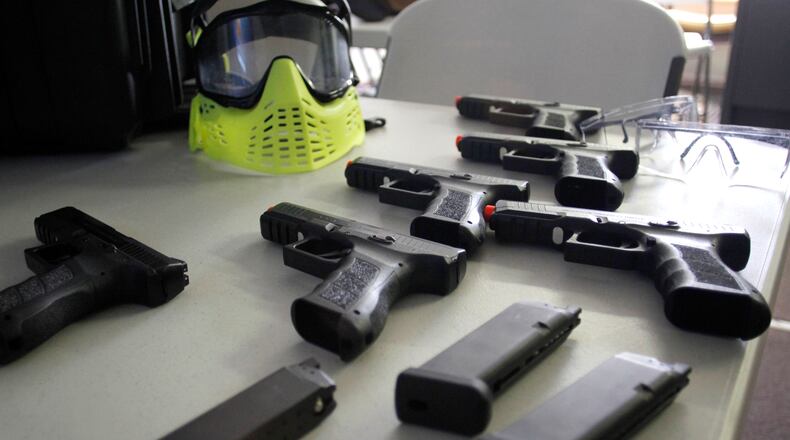Everyone loves money. It's why so many people do things other than work to obtain it.
Police say a Gwinnett housekeeper extracted at least $500,000 from her elderly employer's bank account. To add familial insult to financial injury, she also moved her husband and her kids into her boss's Buford home.
I've never had a housekeeper, but for half a million bucks I expect the place to be kept spotless and not share a bathroom with someone else's children.
The alleged evildoer was caught because the bank contacted authorities. Police took "several months" to investigate and make an arrest. With my bank account, the housekeeper would have moved on the first time she hit my ATM.
This story points out why criminals love cash and police hate it. Credit cards, debit cards and checks (remember those?) leave the paper trail needed to prosecute criminal cases.
Cash is handy when the pizza guy is at the front door, but a really fat piggy bank makes you a target of criminals and law enforcement.
In the Land of the Free, police are free to take cash and property from citizens without pressing criminal charges if they suspect you are a criminal. The only way to get your stuff back is to hire a lawyer and begin a lengthy, expensive process .
It's called "asset forfeiture" and police in Georgia get to keep most of what they seize and use it however they want. When I was a reporter in Valdosta, the Lowndes County sheriff liked to say drug dealers pulled over on I-75 were buying police cars.
Using ill-gotten gains to fight crime seems like a good idea, but some say asset forfeiture got out of control.
The Washington Post says "In 2014, federal law enforcement officers took more property from citizens than burglars did. State and local authorities seized untold millions more."
After headlines like that the Obama administration limited how local police could use federal law to seize cash and property. The Trump administration said this week it is partially restoring the old system , but adding new requirements making it harder for police to seize less than $10,000.
State laws are lax. The Institute of Justice gives Georgia forfeiture laws a grade of D-minus, saying no conviction is required and police get to keep up to 100 percent of assets.
How much have police seized in Georgia and what is the money used for?
In 2015, the Georgia Legislature required police agencies to submit annual reports on asset forfeitures.
UGA's Carl Vinson Institute of Government posts the reports on a website. But, agencies seem to use different reporting systems and some reports are missing. State law requires reports be filed by Jan. 31, but there's no 2016 report for the Atlanta Police Department.
Folks at Carl Vinson said they just post the reports, they don't track who is doing it correctly. They suggested I call the Prosecuting Attorneys' Council of Georgia, but they said they just provide reporting forms for law enforcement to use.
The 2015 law -- the Uniform Civil Forfeiture Procedure Act -- doesn't mention any state oversight of whether local police reports are filed or if they are accurate.
What do we know?
The 2016 DeKalb police report indicates $487,000 was seized under state law, about $1.2 million under federal law, and a balance of $4.5 million remains. The report itemizes what was seized and what the money was spent on, though the descriptions of expenditures are so generic they are nigh useless.
The biggest chunk of change taken was $405,000. The smallest? $81.
Lot of cars, cash, rolling paper, guns and jewelry were also seized. From my research it looks like you're not going to be driving around with a "digital scale" after a traffic stop.
The 2015 APD report says $425,000 in assets was seized under state law and $1.5 million was spent, including three payments more than $300,000. What was the money used for? The report does not say. No federal seizures are listed.
Ten cars were taken. Two were sold and eight were kept for departmental use, including a 1985 Chevrolet Caprice.
Since 2011, APD has seized and kept 29 cars. I wonder where all those cars are today?
Without a better paper trail, we will never know.
About the Author
Keep Reading
The Latest
Featured



